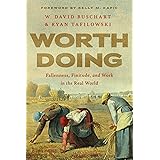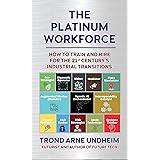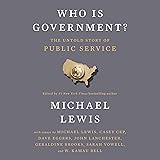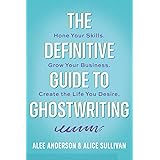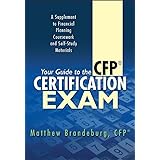Many job seekers dread the word “networking.” Perhaps you recall a cringey event, much like Gina shared in the video above, where you brought a stack of business cards only to find yourself at what felt more like a party. This common experience often leaves us feeling disappointed and convinced that traditional networking simply isn’t for us. However, understanding how to approach job search networking with a fresh perspective can completely transform your career trajectory, opening doors you never knew existed.
The truth is, effective networking isn’t about collecting business cards or attending stiff events with forced conversations. It’s about cultivating genuine relationships and allowing opportunities to emerge naturally. As career coach Jenn Herrity wisely points out, when we focus solely on an immediate outcome, disappointment often follows. Instead, shift your mindset towards building authentic connections and see how this redefines your entire job search process.
Rethink Your Approach to Job Search Networking
For many, the idea of “networking” conjures images of awkward small talk and transactional exchanges. This outdated view often creates immense pressure to “get something” out of every interaction, which can be incredibly draining. The key to successful networking lies in letting go of this outcome-oriented mindset and embracing a more organic, relationship-focused approach. When you prioritize building genuine connections, you naturally plant seeds for future opportunities.
Consider the benefits of casual conversations where you authentically share your professional goals and skills. This might happen during a coffee break, at an industry webinar, or even through a mutual friend’s introduction. When others understand what you are good at and what you are looking for, they become your informal advocates. These advocates are much more likely to think of you when a relevant opportunity arises, leading to valuable referrals and introductions. This shift away from forced interactions makes networking feel much more enjoyable and productive.
1. Embrace Relationship Building, Not Just Opportunity Hunting
Imagine meeting someone new and immediately asking them for a job; it feels pushy and uncomfortable for both parties. Traditional networking often operates with this underlying expectation, leading to those “blah” moments Gina describes. Instead, focus on learning about others, sharing your story, and finding common ground. This fosters a sense of trust and mutual respect, which are the foundations of any strong professional relationship.
By genuinely investing in conversations, you discover shared interests, industry insights, and potential collaborative avenues. These informal connections can blossom into powerful professional allies who will naturally think of you for future projects or roles. When your primary goal is to build rapport, you reduce the pressure on yourself and make interactions far more pleasant and meaningful. This long-term view of relationship building yields far greater returns than a single, outcome-driven interaction ever could.
Mastering the Informational Interview
The informational interview stands as a highly effective, yet often misunderstood, networking tool. It provides a structured way to learn about a role, company, or industry from someone directly involved, without the pressure of a job interview. However, as Gina’s experience highlighted, an unprepared informational interview can quickly go awry, leaving both parties feeling like their time was wasted. Proper preparation is paramount to transforming these conversations into invaluable career-boosting sessions.
Approaching an informational interview requires strategic thinking and a clear purpose. You are not asking for a job; you are seeking knowledge, advice, and insights that can guide your own career path. This distinction helps frame the conversation, making it productive and respectful of the other person’s time. A well-executed informational interview can lead to new perspectives, valuable contacts, and even future opportunities through direct referrals.
2. Prepare Diligently for Your Informational Interview
Preparation is the cornerstone of a successful informational interview. Before you even schedule the meeting, conduct thorough research on the individual you are speaking with. Investigate their career trajectory, current role, and the company they work for. Look for commonalities or interesting points in their LinkedIn profile that you can genuinely bring up as an icebreaker.
For instance, noticing they attended the same university or worked at a previous company you admire creates an instant connection. Develop a list of thoughtful, open-ended questions that demonstrate your genuine curiosity and research efforts. Avoid questions easily answered by a quick search online, as this signals a lack of preparation. Focus on their experiences, challenges, and advice to make the most of their expertise.
- What does a typical day look like in your role?
- What are the biggest challenges or opportunities you see in your industry right now?
- How did you navigate your career path to reach your current position?
- What skills or experiences do you believe are most critical for success in this field?
- Are there any resources, books, or people you would recommend I connect with to learn more?
During the conversation, listen actively and tailor your follow-up questions to their responses. Be prepared to briefly and clearly articulate your own interests and career goals. The aim is to leave a lasting impression as someone curious, engaged, and professional, making them more likely to remember you when future opportunities arise.
Unlocking the Hidden Job Market Through Referrals
Many job opportunities are never publicly advertised; instead, they are filled through internal promotions or, more commonly, through referrals. This “hidden job market” is where many professionals find their next great role, often without ever submitting a traditional application. Indeed, a significant percentage of hires come from referrals, with some studies suggesting up to 85% of jobs are filled through networking. This illustrates the immense power of building and maintaining a strong professional network.
When someone refers you for a position, they are essentially vouching for your skills, work ethic, and cultural fit. This endorsement provides a substantial advantage over other applicants, as it builds immediate trust with the hiring manager. For example, Jenn shared how a former colleague from UT reached out about a career coaching role at Indeed, leading to her current position. These personal recommendations bypass much of the initial screening process and can dramatically increase your chances of securing an interview and ultimately, the job.
3. Cultivate Internal Connections with Skip-Level Meetings
Networking isn’t solely an external activity; some of the most powerful connections you can make are right within your current company. Engaging in “skip-level meetings”—conversations with individuals higher up in the organizational structure than your direct manager—offers invaluable insights. These meetings allow you to understand different departments, strategic priorities, and potential career paths within your own workplace. They are excellent for broadening your internal network and making your aspirations known to key decision-makers.
When requesting a skip-level meeting, be respectful of their time and clearly state your purpose. Frame it as an opportunity to learn and gain perspective, rather than demanding their time. For example, you might say, “I’m looking to better understand the strategic direction of our marketing department and would greatly appreciate 20 minutes of your time to learn from your experience.” Showing initiative and a desire for growth can make a significant positive impression. It allows you to subtly let others know you’re open to new challenges and responsibilities, which can lead to internal career advancement opportunities.
Networking Mastery: Your Questions for the Career Coach
What is effective networking?
Effective networking is about building genuine professional relationships over time, rather than just collecting business cards or attending stiff events. It focuses on cultivating connections that can naturally lead to future opportunities.
What is an informational interview?
An informational interview is a structured meeting where you learn about a role, company, or industry from someone directly involved. It’s used to gain knowledge and advice for your career path, not to ask for a job.
Why is preparation important for an informational interview?
Preparing diligently for an informational interview shows respect for the other person’s time and makes the conversation more valuable. You should research the individual and company, and prepare thoughtful, open-ended questions.
What is the ‘hidden job market’?
The ‘hidden job market’ refers to job opportunities that are never publicly advertised. These positions are often filled through internal promotions or personal referrals from a professional network.


